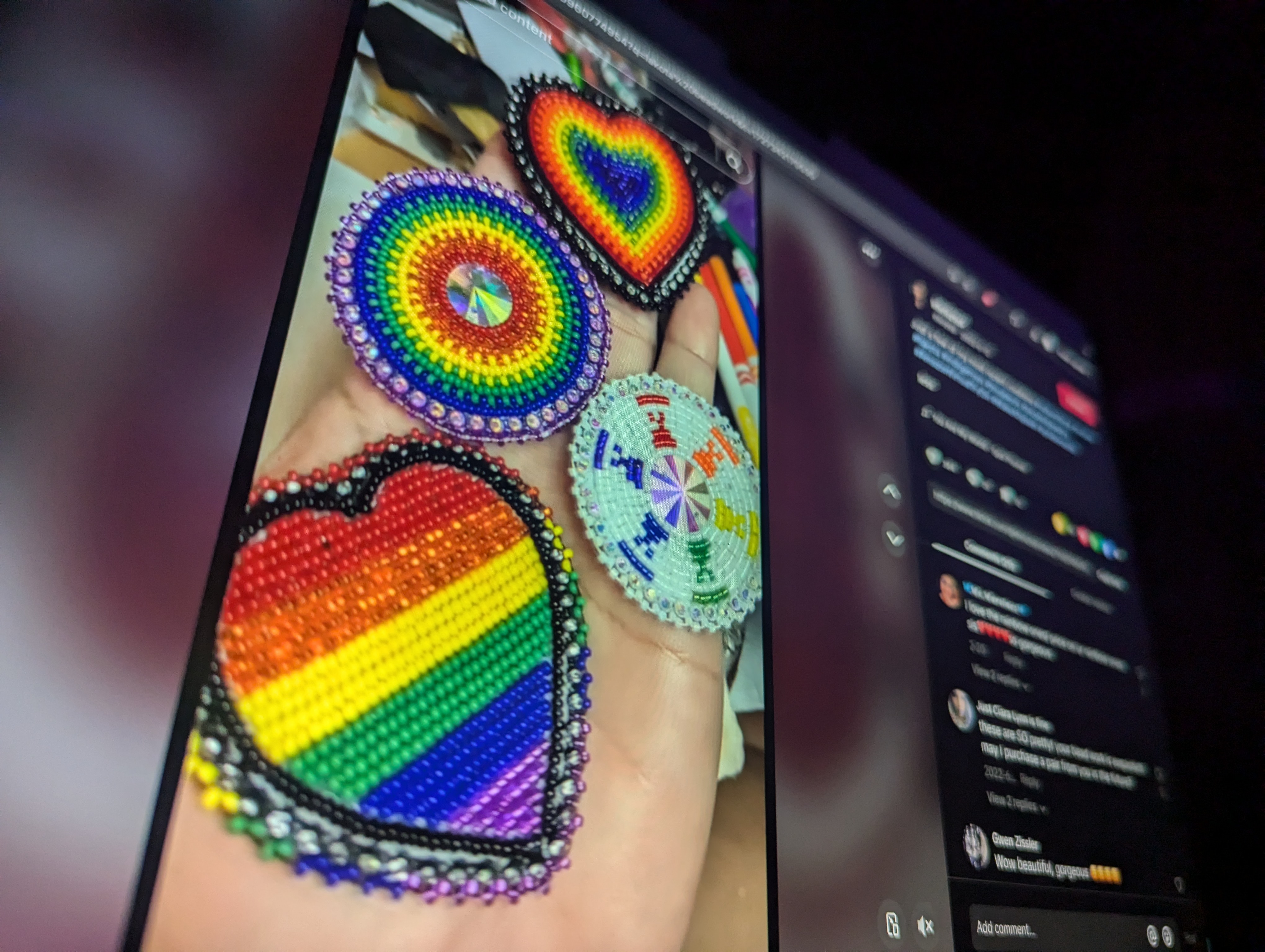
- Details
- By Leland Marmon
Guest Opinion. When Congress passed the TikTok ban legislation in April, it did so without consulting any tribal representatives. On Monday, the D.C. Circuit heard oral arguments in the case that will determine the ban’s fate. The court should strike down this overbroad and unconstitutional ban for many reasons, including the Government’s abject failure to consult with tribes.
Tribal representatives have expressed that the ban would have disastrous effects in Indian Country, as it would silence a vital forum for tribal creators. If this kind of legislation stands, without regard for tribal consultation, what else could it herald for the future of digital tribal sovereignty and respect for the well-established norm of tribal consultation.
Here are the facts: TikTok is an important source of tribal activism, community building, communication, creative economy, and commerce.
Many tribal members have used TikTok to raise awareness about the epidemic of violence against Indigenous people. We’ve done so by posting videos for May 5 — the National Day for Missing and Murdered Indigenous Women and Girls. Tribal members have TikTok to raise awareness about the shocking numbers of Indigenous women who are murdered and raped without any kind of official response. Through TikTok, we have encouraged other tribal members to paint a red hand on their face to honor these sisters’ legacy and raise awareness of the crisis facing Native women.
Tribal citizens also used TikTok as a site to raise awareness about the April 2024 disappearance of Native actor Cole Brings Plenty. Indigenous-led grassroots campaigns started #BraidsForCole on TikTok — showing people of all colors around the world braiding their hair in solidarity and to raise awareness for the many other Indigenous youth who go missing every year. This campaign pushed the investigation forward, and gained a rare apology from the officers who investigated the disappearance. April 15th has now been officially declared Cole Brings Plenty Day by the Oglala Lakota government.
TikTok has been the site of successful Get Out The Vote efforts targeted at tribal youth, ensuring that tribal voices are heard in key elections. Native politicians have found a campaigning home on TikTok. TikTok was also the site for tribal members to raise awareness about the Supreme Court case that threatened to overturn the Indian Child Welfare Act (ICWA), a 50-year-old law that prevents states from tearing tribal families apart, and fends off the looming history of displacement and assimilation. Last summer, the Supreme Court narrowly upheld ICWA after months of activism. Apps like TikTok are especially important for reaching rural tribal members because the primary form of internet access for many are smartphones, often received through the Federal Lifeline program.
TikTok is also an important site for tribal commerce. Many reservations are rural and isolated from the rest of the nation, let alone the world. Artisan goods are one of the primary forms of income for tribal members, and are now accessible year-round, to anyone, anywhere in the world via TikTok.
The federal government has long recognized that tribal consultation is a critical aspect of upholding the unique trust relationship between the United States and tribal nations.
Given the many ways that Tribes and tribal citizens use TikTok, you would think that the federal government would have at least considered the effects the ban would have. But Tribes were not consulted at all.
What’s more, this is not the first time this neglect has happened. In April 2023, Montana unsuccessfully attempted to ban TikTok in the state without regard for the impact on Indian Country. The state overstepped its right to regulate within reservations, where it does not have jurisdiction, in a gross circumvention of the trust relationship between governments, completely dismissing federal consultation practices.
Congress opted to neglect the voices of the countless tribal members who are part of the 170 million Americans who use TikTok. Instead, the Government has filed secret evidence, redacted from public view, to support its national security concerns.
When litigation affects tribes, tribes take notice. Groups representing their interests have already joined the conversation challenging this brazen federal indifference towards sovereignty and tribal data protection to the Supreme Court. The U.S. federal government cannot change the rules based on secret evidence.
Their speculative national security concerns can’t justify the TikTok ban’s collateral damage. The court should strike down this unconstitutional legislation.
Other social media platforms simply do not have the same reach and effect when it comes to Indian Country. Help us keep this important source of communication, commerce, and creative expression open for all.
Leland Marmon of Laguna Pueblo is a policy advocate focused on addressing systemic inequities and promoting Indigenous rights.
Help us defend tribal sovereignty.
At Native News Online, our mission is rooted in telling the stories that strengthen sovereignty and uplift Indigenous voices — not just at year’s end, but every single day.
Because of your generosity last year, we were able to keep our reporters on the ground in tribal communities, at national gatherings and in the halls of Congress — covering the issues that matter most to Indian Country: sovereignty, culture, education, health and economic opportunity.
That support sustained us through a tough year in 2025. Now, as we look to the year ahead, we need your help right now to ensure warrior journalism remains strong — reporting that defends tribal sovereignty, amplifies Native truth, and holds power accountable.
 The stakes couldn't be higher. Your support keeps Native voices heard, Native stories told and Native sovereignty defended.
The stakes couldn't be higher. Your support keeps Native voices heard, Native stories told and Native sovereignty defended.
Stand with Warrior Journalism today.
Levi Rickert (Potawatomi), Editor & Publisher

